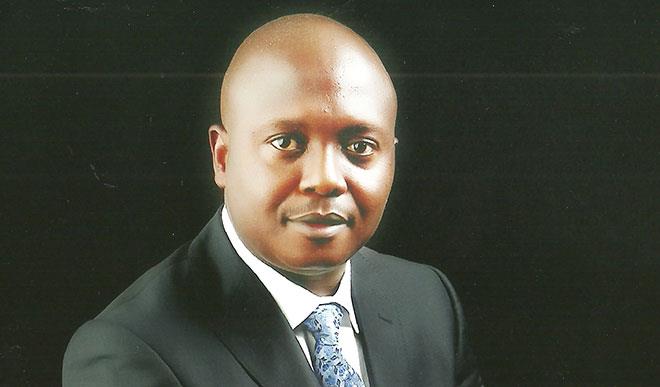‘Why NBA won’t seek sanctions against army on violations’
Barr Emeka Obegolu is the chairman of the Nigerian Bar Association (NBA) Committee on Human Rights in the North East and South East. He is also the vice president of the Pan-African Lawyers Union (PALU). In this interview, he speaks on the efforts of the committee to address human rights abuses by security agencies in […]


Barr Emeka Obegolu is the chairman of the Nigerian Bar Association (NBA) Committee on Human Rights in the North East and South East. He is also the vice president of the Pan-African Lawyers Union (PALU). In this interview, he speaks on the efforts of the committee to address human rights abuses by security agencies in conflict areas of the country and other issues. Excerpts:
You recently had an agreement with the military on human rights. Can you throw more light on it?
The Nigerian Bar Association led by Augustine Alegeh (SAN) as part of our intervention in the national polity decided that with the ongoing war against terrorism in the North East and all the allegations about violations of certain human rights, that it will be in the interest of the nation and of course the citizens and inhabitants, especially from the North East to create an avenue for those who are in conflict with the law to air their grievance and report all suspected abuse of human rights by the military, and indeed, all the armed forces, the police and the paramilitary agencies in the North East. So we got engaged with the Nigerian Army as the lead institution involved in the war against terrorism.
The collaboration that led to the first workshop on human rights in the North East was held in Maiduguri last year. At that workshop all the stakeholders in the country were represented including the office of the Attorney General of the Federation, National Human Rights Commission, human right groups, all the military and paramilitary agencies, and in fact the NBA was the lead convener. During the workshop, the critical stakeholders in the North East were given the opportunity to make their presentation, air their grievances on ways they thought the war on terrorism could better be fought while still respecting the human rights of their people. At the end of the workshop, part of what we resolved to do was to create a toll-free set of lines which will be managed by the nine branches of the NBA in the North East where persons who have reasons to suspect that government agencies are involved in human rights violations, can call in and make report to the NBA. And we also got commitment from the Nigerian Army, and the Chief of Army Staff who was present, that where the commanders in the field fail to address grievances and the NBA escalates it to the Chief of Army Staff or the Defence headquarters, the army high command will deal with such issues and should expect that where we establish such cases of violations, the offenders will be punished. So that is where we are today.
We understand that NBA also has suggestions to quell insurgency. What are the measures you have to support the military?
There can be no better support than to galvanise the civil populace behind the war against insurgency. What the NBA has done is to build the confidence of the civil populace within the North East zone that the military is fighting a war that benefits all of us. Yes, there could be cases of violations of rights by officers and men who go outside the military code of conduct. And where such happens it is not the will of the military or the armed forces. That it will be investigated and where established, the offenders will be punished.
So there can be no better support in any insurgency fight anywhere in the world than for the community, the inhabitants to back the government forces. Because it is those people who would give you information that would lead to arrest or intervention in certain cases. So that confidence building is a process which we have commenced. And we are of the firm belief that as time goes on, the benefits will start to yield as we see clear support from the populace on the efforts of the Nigerian Army.
You are also the chairman of the human rights committee for the South East. Can you throw more light on your intervention there?
The South East issue arose after the North East when we had reports from our members during the February National Executive Committee meeting that the military again is engaged in efforts to contain the pro-Biafra agitators. And there were also reports that there could be instances of gross abuse of the fundamental rights of the populace in the South East.
So at the NEC, the president also expanded the work of my committee to also include intervention in parts of the South East. What we have done essentially is to take the mandate of the NEC, we are going to call a meeting of the leadership of the various branches affected in the South East and we will design a template for future engagement. We have also reached out to the Nigerian Army and we are structuring meaningful intervention for the South East. That is where we are now. It is a process that has commenced and we are nurturing it to fruition.
